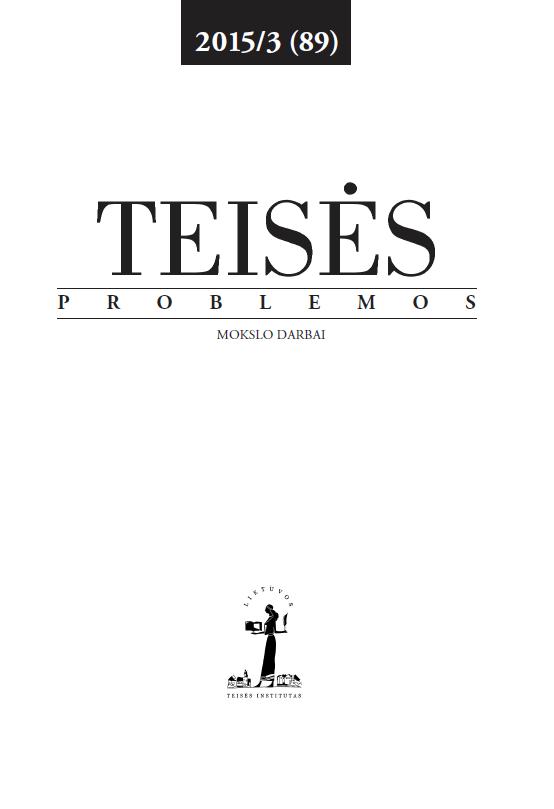Apylinkės teismo nutartis dėl raidės „W“: atvejo analizė precedento doktrinos aspektu
Ruling by the Court of First Instance in Regard of Letter W: a Case Study in Respect of Judicial Precedents
Author(s): Johanas BaltrimasSubject(s): Law, Constitution, Jurisprudence, Philosophy of Law
Published by: Lietuvos teisės institutas
Summary/Abstract: The article deals with the issue of Lithuanian case-law on the matter of spelling in personal documents with letters from non Lithuanian alphabets or disregarding rules of Lithuanian language grammar. Question of spelling foreign names in documents is of big political im-portance, since it has received a lot of public attention, in last few decades there were over 20 unsuccessful attempts to pass laws which lay down relevant regulation. Particular focus of research is drawn upon Lithuanian case-law, where recently a judi¬cial precedent occurred, which conflicts with earlier rulings. In a few cases the Lithuanian Supreme Court ruled for Lithuanian-only spelling in documents, but in 2015 a court of first instance (Vilnius county court) delivered a contrary ruling. It did not receive any appeals, therefore, came into force. Such status causes ambiguity when deciding, whether spelling of names in documents not in Lithuanian is prohibited by law. The main objective of the article is to present relevant reasons for this question as far as it concerns the doctrine of judicial precedent. Accordingly, relevant statutory law and legal doctrine are evaluated. This led to finding that, following the conventional view, earlier case-law provides legal principles which should be currently applied. On the other hand, legal principle from the recent precedent could be binding if there was an adequate basis to overrule previous precedents. In the instant case such basis can be found in the fact that the legislature unjustifiably delayed the enactment of relevant rules and this caused a legal gap. Such unjustifiable delay may give courts the power to fill the legal gap by way of interpretation. However, presence of these conditions for overruling are arguable and the most appropri¬ate solution in this case is for the legislature to pass the law, which lays down the rules for the issue in question. Demand for such law is increased by the fact that current legal circumstances create uncertainty and may cause infringements of the right to equal treatment by the law.
Journal: Teisės problemos
- Issue Year: 2015
- Issue No: 89 (3)
- Page Range: 83-105
- Page Count: 23
- Language: Lithuanian

